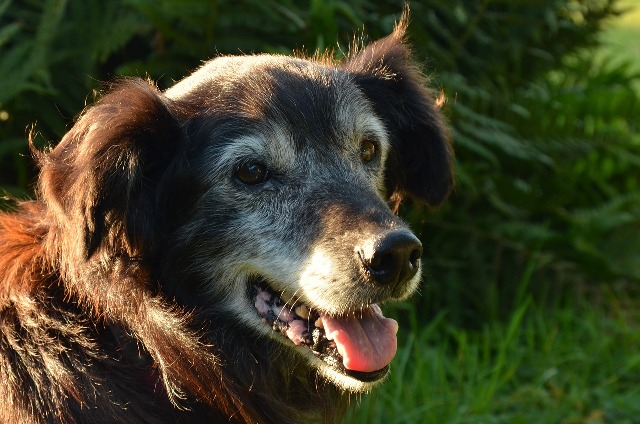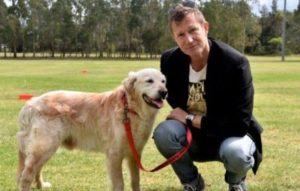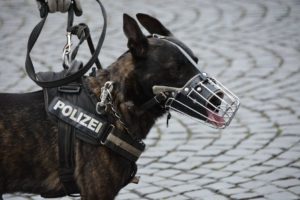Caring for older dogs is something every dog parent should know about. Old dogs require extra care just like humans.
The following aspects need to be considered for caring for older dogs.
Life Expectancy: Veterinary medicine like its human equivalent, especially in the area of geriatrics has made enormous advances, which have seen a dog’s life expectancy rise dramatically since the 1970s.
However recent research has show life expectancy has dropped dramatically in the last 10 years.
I explain why this has happened and what you need to do to allow your dogs to reach a ripe old age
We should be aware of what we need to do to help these dogs who are in the last stages of their life.
Unfortunately, the requirements to allow those dogs to live a healthy and comfortable life may sometimes be overlooked or not totally understood.
Numerous surveys have found that many pet owners are not aware when their pet will become a senior citizen, after all, they do not get a pension or a bus pass to mark this important transition.
Therefore, the correct times to look at changes in lifestyle, food, and supplements that may help your dogs live far longer and happier, maybe sadly disregarded.
Let’s initially look at how to age a dog in real terms. The old chestnut that states one dog year to every seven human years is one of many old wives tales that are often wrong.
As a general rule of thumb, it should be fifteen for the 1st year ten for the 2nd and then four years for every year thereafter. This is only an approximation. There is a chart that works on size, breed and weight that gives a more accurate picture than this.
There are more than 400 different breeds of dog in the world this statistic doesn’t take into account the numerous mixed breeds that are becoming increasingly popular.
Dog’s age at different rates depending on size, breed and more importantly weight. A Great Dane would be classed as senior at 6 or 7 years, where a small breed such as a miniature poodle would have to be almost twice that age to be classed as a senior. Weight also plays a major part in the calculation of ages.
Obesity: It is a simple fact that overweight dogs die younger. They have far more health problems than slimmer fitter dogs of the same age. Most of the problems come from three areas, overfeeding, exercise and neutering. Over-feeding and especially in puppies is a recipe for disaster. Early neutering also causes bone problems and major problems obesity in later life, because it slows down the metabolic rate that burns calories/.
Feed good quality food. The ones that you get in most supermarkets are not my kibble of choice. I use Raw Bella and Duke Fish4Dogs for my older dogs and my young ones. With that extra amount of naturally occurring Omega 3, I find it helps the joints perform better than the other types of Kibble.
Pups that are overfed produce extra fat cells so they can store the excess calories. Once these extra fat cells have been created, they stay with the dog for life and the dog is then going to be prone to obesity.
If the pups are overweight as pups; the extra weight can also put stress on the dog’s bones that may lead to hip and elbow dysplasia and other skeleton and joint problems.
Exercise: Lack of exercise can also be a cause of obesity. Dogs need both mental and physical stimulation to stay healthy and fit. Of course, the amount of exercise you give an older dog must be relative to the ability to declining muscle tone and bone deterioration.
Some of the first sign of ageing is a tendency to sleep for longer periods, especially in a deep sleep. A reduction in general activity and a loss of drive for previous types of stimulation, such as games with toys, chase, retrieve and tug.
Neutering: I am not totally against neutering for the right reasons. I just cannot understand the clamor for neutering at all cost, because it is believed that it is better for the dogs. It is unnecessary, and in many cases, it has a detrimental effect.
I totally believe neutering in puberty is intrinsically wrong and is always bad for the dogs overall well being, both physically and psychologically. We should wait until the dogs are physically and mentally mature, then make the decision on whether to neuter. However, it would be prudent to think long and hard.
There are a number of arguments for neutering adult dogs. These include marking behaviour, mounting, roaming, seasons, aggression where the aggression is shown to be hormonal, and some medical reasons.
It is worth reading my articles on neutering, before deciding to castrate or spay your dog What always happens, and the vets and pro neutering lobbies deny this. Spaying and castration slow down the metabolism, with resultant weight gain if not carefully monitored. A strict diet and an exercise regime need to be put in place if you do not want to end up with a seriously overweight dog.
COMMON MEDICAL PROBLEMS OF AGEING
Caring for older dogs requires knowledge of the following :-
Diseases: As dogs move into their seniority period certain problems can arise. The most common is arthritis and general stiffening of the joints. Arthritis can occur in with dogs as they move into middle age or through injury or illness. It can affect any joint, but most commonly the legs, neck and back (spine). I have a nine-year-old white German Shepherd called Kai who has arthritis and lameness in his back legs.
Hypothyroidism, which may be another cause of your pet slowing down. This is common in dogs especially after the dogs have reached four years of age and onward, it is easily diagnosed and treated. Diabetes especially in dogs that are overweight is also common and easily treated.
Eyesight Problems: Dogs like humans get age-related failing sight. Having said that the common misconception is when we see dogs with blue or cloudy eyes we think the dog is blind or has cataracts.
In the main, this is more often caused by what is called lenticular sclerosis and does not affect the vision of the dog. Cataracts are white or opaque. Lenticular sclerosis is very common and often misdiagnosed by owners.
Hearing: Again like humans, this tends to fail as the dog gets older. Normally you start to notice it when the dog gets startled easily when you come up behind, or it does not wake up when you are clumping around near its bed. There is nothing you can really do about this. If you want to be able to call the dog back when off the lead you can purchase a vibrating collar they are not that expensive. You will need to train the dog to look at you when you activate it.
Incontinence: Canine cognitive dysfunction (Senility/Alzheimer’s) means that our dogs forget basic things including house training. It is no use berating or punishing the dog for incontinence, they are often terribly upset that it has happened, and it is never intentional.
Other reasons for incontinence are hormones oestrogen in females and testosterone in males, these can affect a dog’s ability to control the urethral sphincter which is muscular tissue near the base of the bladder. The sphincter acts as a valve, and age weakens it.
The production of these hormones naturally decreases as a dog’s ages, which is why this type of old dogs’ incontinence may start as the dog reaches its senior period. Of course, castrated and spayed dogs are far more prone to this type of problem, as the hormones are created through the reproductive organs which in females are the ovaries and in males the testicles. These are removed during neutering, therefore, increasing the likelihood of incontinence as the dog ages.
Spayed or neutered dogs are more likely to develop the condition because their reproductive organs (which are responsible for the production of hormones) have been removed. More than 20% of spayed females are affected with urinary incontinence. Early neutering is one of the main reasons dogs become incontinent. There is a medical term for it “Spay Incontinence”.
Both male and female dogs can also be affected, with medium to large breeds being more prone to the problem. The number of cases is likely to increase with the growing number of older dogs, advances in geriatric veterinary care and a significant amount of time pets spend indoors
An age-worn sphincter can also be the cause of incontinence. Both the above problems are curable Some medications and ailments can cause the dog to drink more water and be unable to hold it in its bladder. These include Cushing’s Disease and Diabetes, steroids and diuretics can also trigger this condition.
WHAT YOU CAN DO TO HELP YOUR OLD DOG LIVE LONGER AND ENJOY OLD AGE
Caring for older dogs must include the following :-
Buy your dog a comfortable soft bed for its aching bones and joints. Memory foam can really help.
How would we like to sleep on a hard floor when we become old? Position it away from draughts and somewhere nice and warm, but make sure the temperature does not fluctuate wildly.
As mentioned before obesity on failing muscles and arthritic limbs can exacerbate the problem.
Older dogs especially if they are neutered do not burn off the calories as well as when they were fit and young. Therefore, diet is a very important area to look at.
Regular Vet checkups are also a must to check for changes in the older dog. Ask the Vet to look at the dog’s teeth.
Attention to dental care is very important. Conditions such as heart disease can result from gum disease or decaying teeth as the dogs build up tartar over the years.
Some of the best teeth care treats for dogs are natural air-dried dog chews and especially Calves Hooves. Beef Scalp and Cows Horn.
GROOMING FOR OLD DOGS
Grooming is also an important part of caring for older dogs.
Because the dog has become old it does not mean that grooming should stop, it is an important routine that solidifies the bond between owner and dog, But also serves a purpose in a number of other ways, stopping knots and tangles, alleviating shedding, tactile massage and removing thorns and other seeds.
When grooming it is worth remembering that as the dog ages it may get also get lumps, growths and warts because the skin also becomes less elastic and thinner it is prone to scabs, cuts, and scratches.
Make sure you groom gently and carefully and be mindful of the possible damage you may cause. Sometimes a gentle massage can help painful and aching joints.
Note from Dogward.com – Caring for older dogs is by no means an easy task. Besides love for your dog, you also need patience. Due to medical conditions an older dog may not always behave the way you want him to. He may show disobedience or erratic behavior also just like humans. The above article also points out that caring for older dogs also requires knowledge so do learn as much as possible about the breed.
The above article is by Stan Rawlinson who is a professional dog behavioral expert and his website is doglistener.co.uk
Specialises in all dog behaviour problems but is a renowned expert on the importance of early socialisation in puppies. Aggression, both interdog and Interhuman, and fear based problems in dogs.
Author of the Ten Commandments for Dogs. His website is doglistener.co.uk




